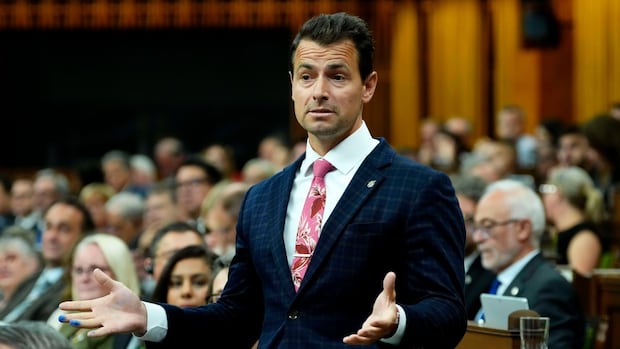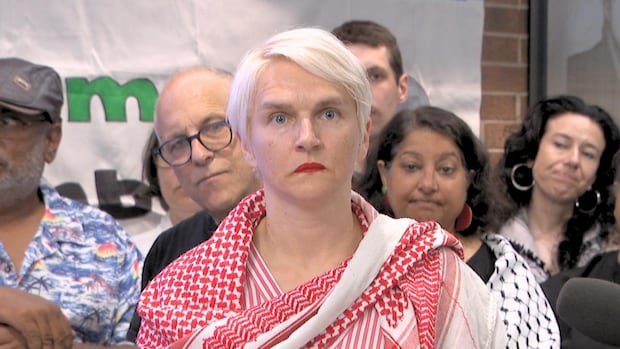An Air Canada pilot vented his frustrations over air traffic controller shortages on a recent flight, telling passengers to write their MPs to address ongoing delays at the country’s airports.
The pilot on a Vancouver-Montreal flight on Saturday vented over the intercom, with a CBC reporter capturing a portion of his message announcing a 50-minute delay.
In the message, he says that the air traffic controller sector — which is operated by private company Nav Canada — was understaffed, and sick calls had meant there was a holdup at the airport that day.
“It’s very annoying,” the pilot told the passengers. “It’s cost the company a lot of money. It costs business people a lot of money, and it would be great to have this addressed.”
Air Canada says it’s been hit by unexpected delays at Vancouver International Airport in recent weeks. The airport confirms a shortage of air traffic controllers has caused delays and cancellations. As Jon Hernandez reports, a pilot expressed his frustrations to a plane full of passengers on Saturday.
The pilot goes on to accuse Nav Canada of keeping the number of new trainees low in order to keep overtime numbers high and asks passengers to tell their representatives about it.
“Please write your MP and let them know what’s going on and how it’s affecting your business or your leisure plans,” he urged.

The frustration expressed by the pilot comes a little over a month after Nav Canada said that “resource constraints” had led to dozens of flights being cancelled or delayed.
An Air Canada spokesperson confirmed in a statement that Nav Canada restrictions had affected airline schedules at Vancouver International Airport (YVR) for several weeks.
A spokesperson for the company denied that trainees were being intentionally rejected as unsuitable to protect overtime, and said it is scaling up training operations in response to the shortage of air traffic controllers.
An airline CEO and the pilots’ union both say that the labour crunch is a nationwide challenge that requires a wholesale effort to solve.
Small airlines affected
Tim Perry, the president of the Air Line Pilots Association, says that if a passenger gets frustrated with delays, it’s natural that pilots would too.
He said that, however, delays were not the fault of individual air traffic controllers but rather a systemic issue.
“If we need more people at work, let’s direct our collective attention to doing that,” he said.
“We really need to look to the future, work collaboratively with all the stakeholders,” Perry added. “That means government. That means labour representatives, and it means employers, to make sure that the entire system is staffed appropriately.”

Teara Fraser, the CEO of Indigenous-owned airline Iskwew Air, operates short flights between YVR and Qualicum Beach on Vancouver Island.
While the flights are very short — usually clocking in just under half an hour — Fraser says there have been delays every day on most flights, and the shortage of air traffic controllers wasn’t “a new problem, but it’s certainly worsening.”

“We’re getting delays of anywhere between 20 minutes and two hours,” she told CBC News. “When you are operating a 20-25 minute flight, that’s significant.”
Fraser urged the federal government to properly fund airports, airlines and service providers.
Nav Canada cites training efforts
In a statement, a Nav Canada spokesperson confirmed that “resource constraints” necessitated a temporary traffic management initiative on Saturday, which led to delays.
The spokesperson said the company is in the process of significantly expanding its training capacity across the country to meet growing demand.
“We currently have close to 500 students within our training programs today,” they said. “By 2028, we expect the total number of students who will have entered [Nav Canada’s] training program to be approximately 1,500.”
The spokesperson denied the Air Canada pilot’s allegation that air traffic controller trainees were being intentionally rejected in order to protect overtime.
“Prior to any decision being made to cease training for an individual, a multidisciplined panel evaluates opportunities to further support the candidate or to restream them to another program,” the spokesperson said. “We leave no stone unturned in supporting a candidate’s success.”

The spokesperson said that close to 40 licences for air traffic controllers had been issued in Vancouver over the last year, something they called a clear sign of progress.
“Certain specialties in Vancouver present some of the most complex training environments in the country, due to the intricate airspace structure and high traffic volumes,” they added.
“That said, our significant investments and efforts in training and development are yielding tangible results.”







